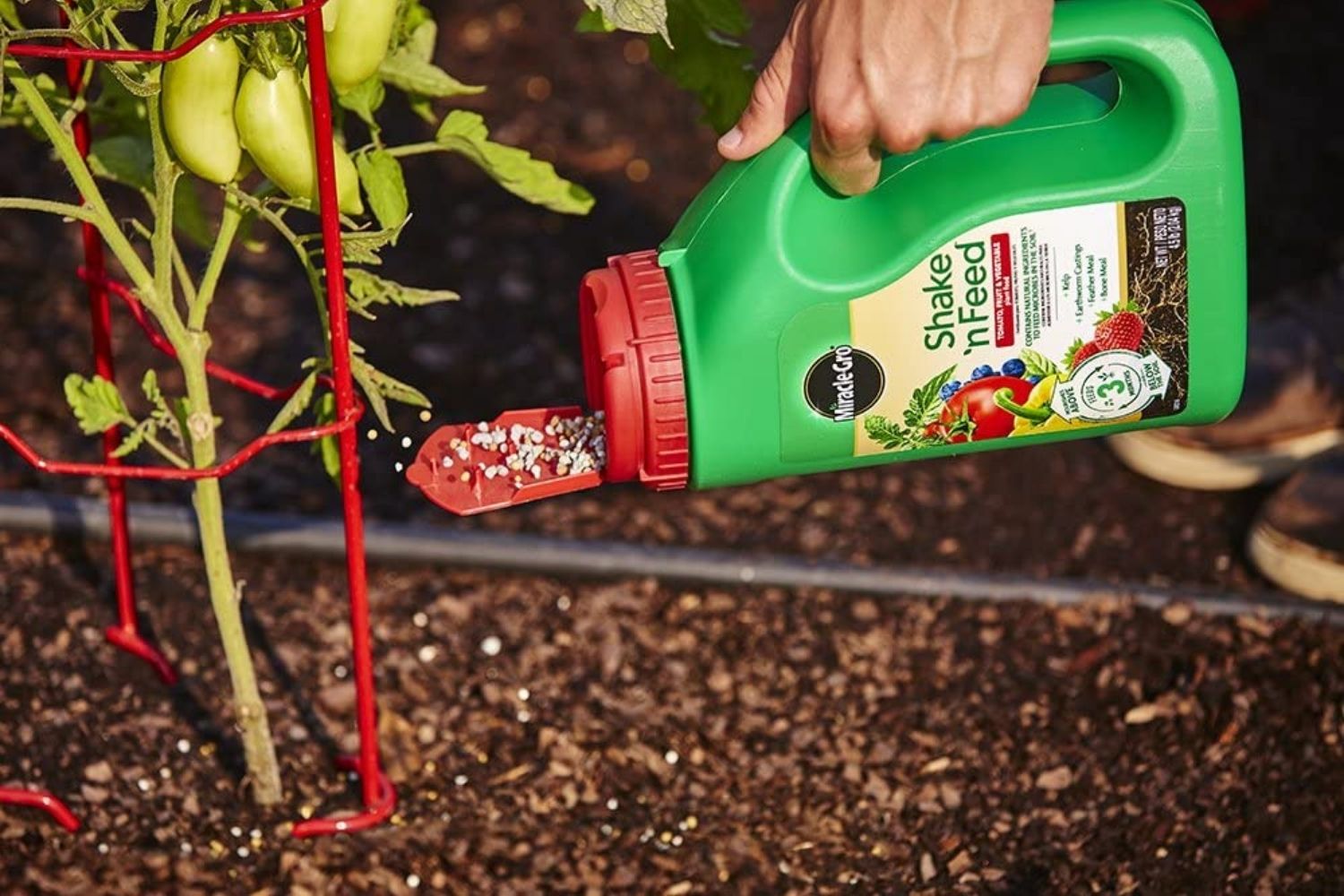Organic Vs. Synthetic Fertilizers: Which Is Best for Nurturing Healthy Pepper Plants?
In the world of supporting healthy and balanced pepper plants, the option in between artificial and natural fertilizers stands as a pivotal choice with far-ranging ramifications. While both options purpose to supply essential nutrients to support plant growth, the subtleties of their influence on the dirt, plant health, and the atmosphere trigger a discussion that mirrors throughout the gardening community. Recognizing the distinct benefits and prospective mistakes of each fertilizer type is critical for pepper growers looking for to maximize their yields while keeping an eco-conscious and sustainable strategy.
Benefits of Organic Fertilizers
Organic fertilizers offer a sustainable and environmentally-friendly method to beneficial pepper plants, supplying important nutrients without the use of artificial chemicals. These natural fertilizers are originated from natural resources such as compost, manure, bone meal, and algae, promoting dirt health and biodiversity. Unlike synthetic fertilizers, organic alternatives release nutrients gradually, ensuring a balanced and stable supply for pepper plants to prosper.
One significant advantage of organic fertilizers is their ability to improve dirt framework and water retention. By improving soil wellness, organic plant foods advertise advantageous microbial task, which aids in nutrient uptake by pepper plants. In addition, organic plant foods minimize the danger of chemical run-off, shielding water sources from contamination and safeguarding the setting.
Furthermore, natural fertilizers contribute to long-term soil fertility by promoting the development of beneficial soil microorganisms. These microorganisms help damage down raw material, launching nutrients in a type that is quickly obtainable to pepper plants. best fertilizers for peppers. By cultivating a healthy soil ecosystem, organic plant foods sustain sustainable pepper cultivation practices that profit both plants and the environment
Drawbacks of Synthetic Plant Foods
Synthetic fertilizers, in comparison to their organic counterparts, present various disadvantages when used to nurture pepper plants, impacting both plant health and ecological sustainability. One major drawback of synthetic plant foods is their propensity to leach nutrients from the dirt promptly. This fast leaching can lead to nutrient imbalances in the dirt, causing plants to endure from shortages or poisonings. Additionally, artificial fertilizers can damage helpful soil organisms, such as earthworms and valuable bacteria, interrupting the soil environment's equilibrium.
In addition, the overuse of artificial fertilizers can add to water pollution. Excess plant foods not taken in by plants can remove right into water bodies, bring about eutrophication, where algae blossoms diminish oxygen levels in the water, harming water life. Artificial plant foods are commonly acquired from non-renewable resources, such as fossil gas, adding to carbon exhausts and environmental degradation throughout their production.
Nutrient Absorption Contrast
Effective nutrient absorption plays a critical function in the total wellness and development of pepper plants. When contrasting synthetic and natural fertilizers in regards to nutrient absorption, organic fertilizers have the benefit of providing an extra balanced and slow-release source of nutrients (best fertilizers for peppers). Organic plant foods consist of a selection of macro and micronutrients that are not only valuable for the plants yet also promote healthy and balanced soil microbial activity, which helps in nutrient uptake. On the other hand, artificial fertilizers commonly supply a quick launch of nutrients, which can bring about leaching and drainage, resulting in reduced nutrient absorption rates by the plants.
Moreover, organic plant foods boost soil framework and water retention capacity, enabling pepper plants to gain access to nutrients extra successfully. This improved dirt top quality assists in root growth, enabling far better nutrient absorption. Synthetic plant foods, although at first improving plant development as a result of their high nutrient concentrations, might impede long-lasting nutrient absorption by degrading dirt health over try this site time.
Environmental Influence Considerations

On the other hand, artificial fertilizers, although commonly more concentrated and immediately offered to plants, can have destructive results on the setting otherwise used correctly (best fertilizers for peppers). Their manufacturing calls for high energy inputs, resulting in greenhouse gas exhausts and adding to environment modification. The overflow of excess artificial fertilizers can pollute water resources, leading to eutrophication and hurting aquatic environments.
Best Plant Food Practices for Peppers
When feeding pepper plants, maximizing nutrient uptake and decreasing environmental effect are vital considerations. To accomplish this, it is important to follow finest fertilizer techniques customized to the specific needs of pepper plants. One important technique is to execute a dirt test before using any kind of plant foods. This examination can determine the pH level of the soil and identify any nutrient deficiencies, directing you in choosing the most appropriate plant food solution.
Another important practice is to feed pepper plants at the best time. Usually, peppers take advantage of getting fertilizer at planting and afterwards once more when they begin to flower. Over-fertilizing can result in nutrient imbalances and harm top article the plants, so it is essential to adhere to suggested application rates.
Furthermore, choosing a well balanced fertilizer with an NPK ratio that fits pepper plants' demands is basic. Eventually, combining synthetic and natural fertilizers sensibly can help nurture healthy and balanced pepper plants while reducing ecological effect.
Conclusion

Organic plant foods offer a lasting and environmentally-friendly method to beneficial pepper plants, providing vital nutrients without the usage of synthetic chemicals. Unlike artificial plant foods, organic choices launch nutrients slowly, ensuring a well balanced and constant supply for pepper plants to flourish.
Artificial plant foods, in contrast to their organic equivalents, posture various downsides when made use of to nourish pepper plants, influencing both plant health and environmental sustainability. When comparing natural and synthetic plant foods in terms of nutrient absorption, organic fertilizers have the benefit of providing a much more well balanced and slow-release discover here source of nutrients.Moreover, natural plant foods boost soil framework and water retention ability, permitting pepper plants to access nutrients much more effectively.